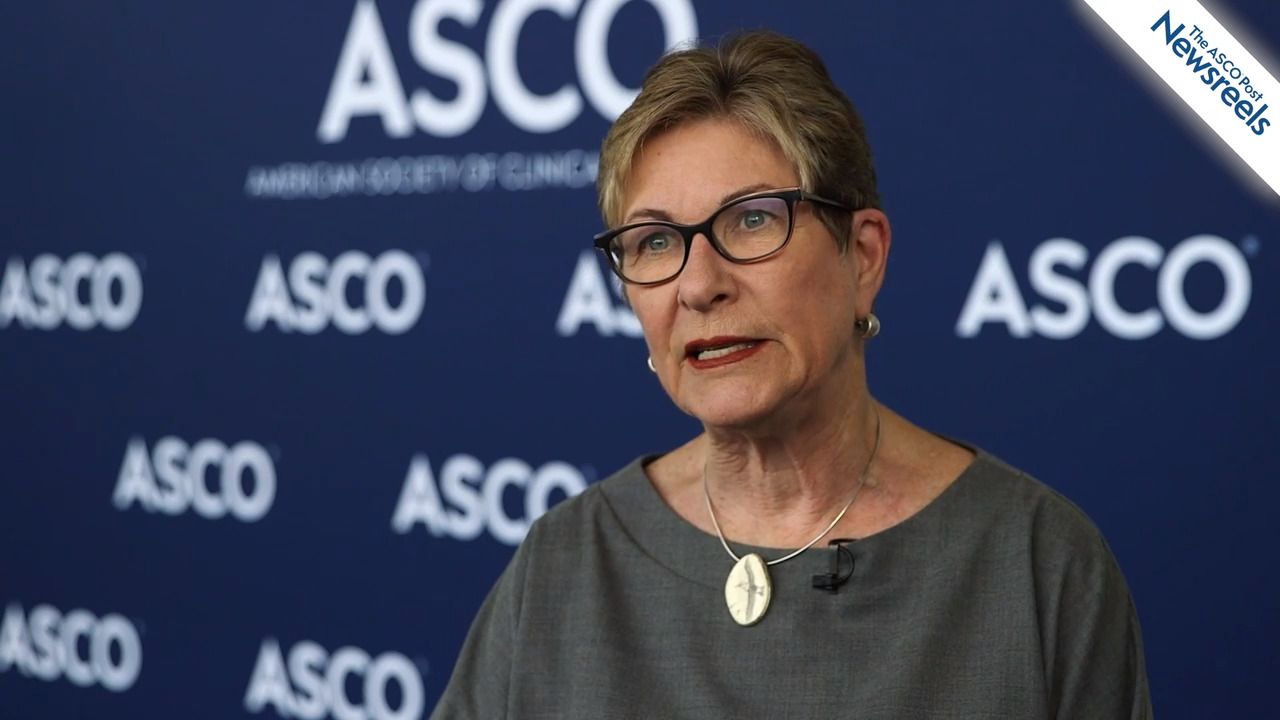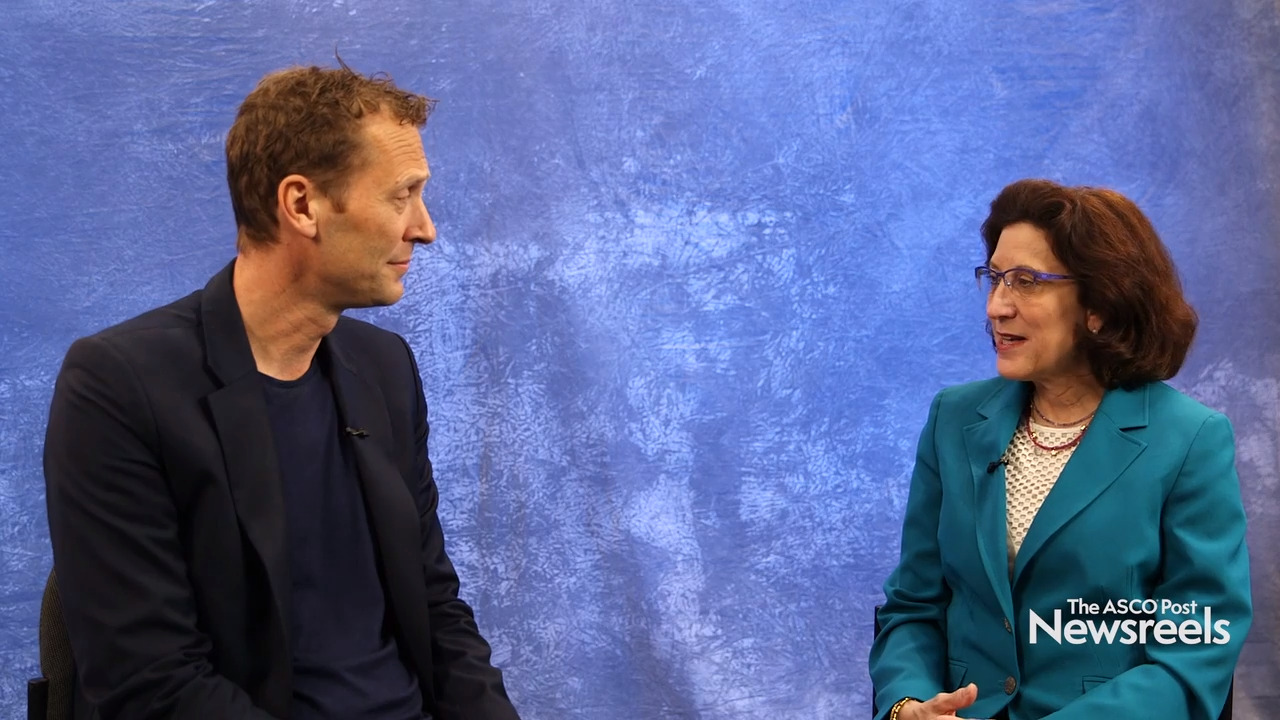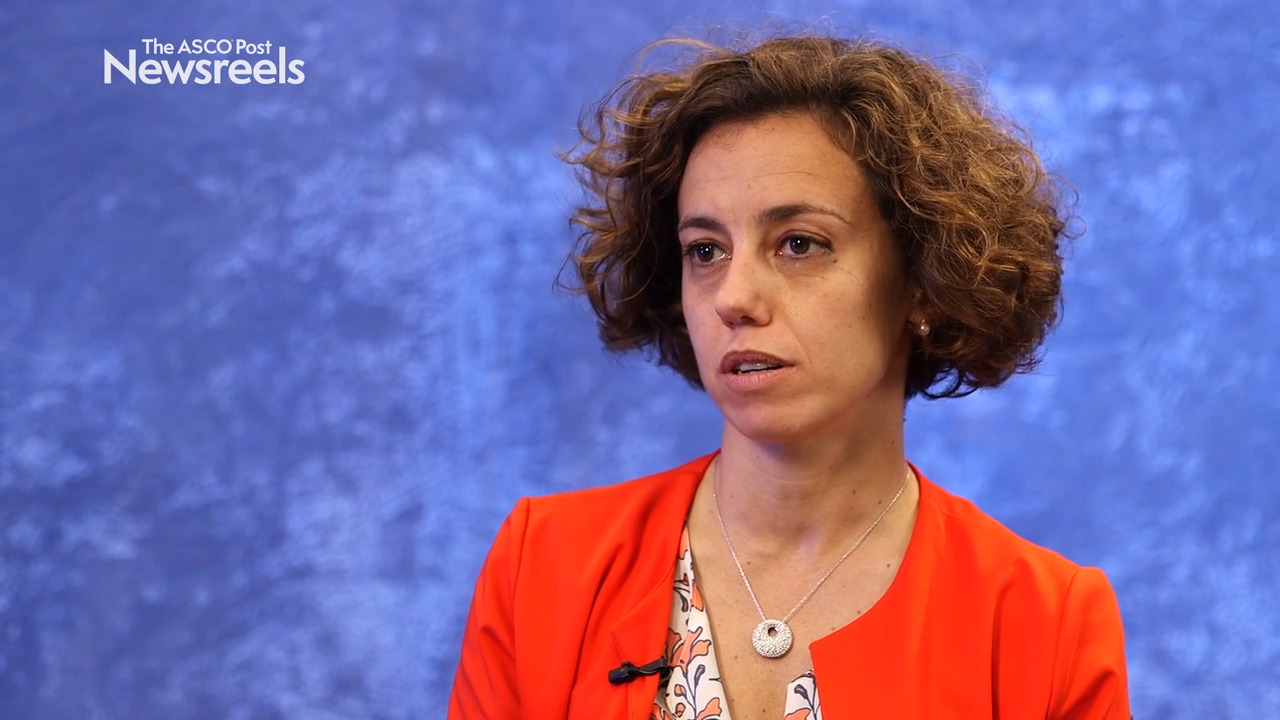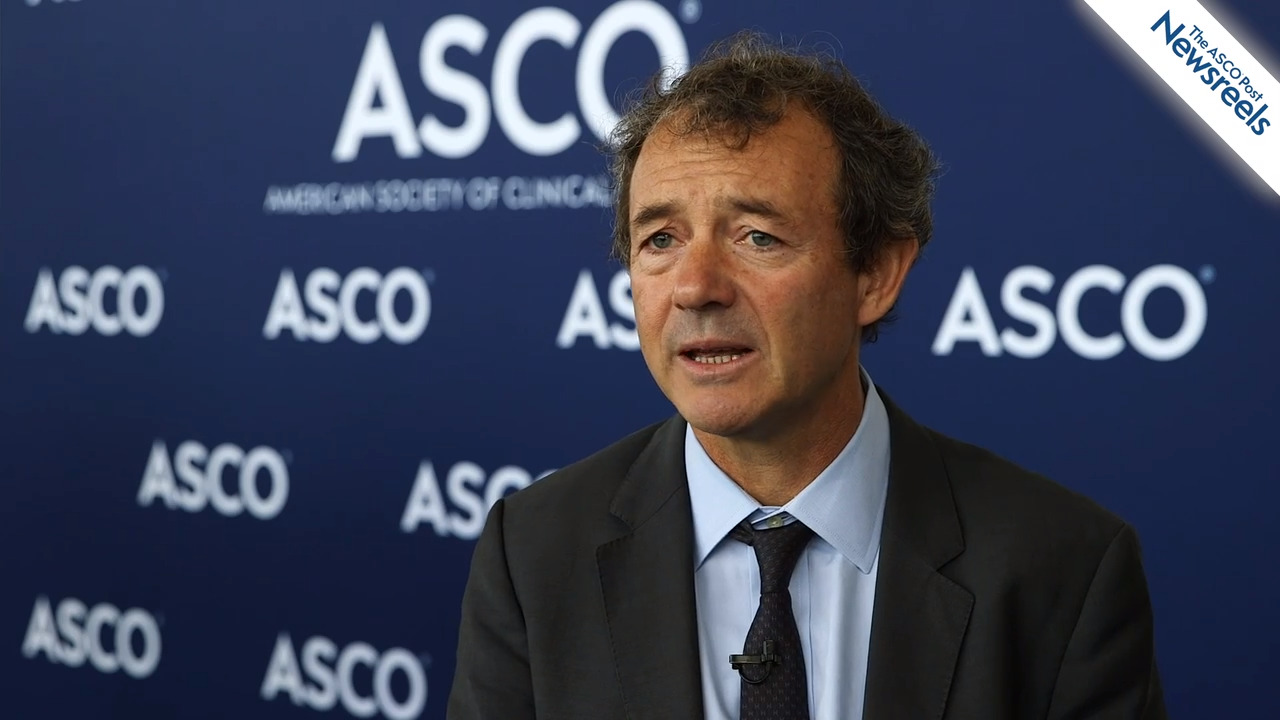Ziad Bakouny, MD, and Toni K. Choueiri, MD, on Renal Cell Carcinoma: Checkpoint Inhibitors and Genomic Characterization of Sarcomatoid/Rhabdoid Disease
2019 ASCO Annual Meeting
Toni K. Choueiri, MD, and Ziad Bakouny, MD, both of Dana-Farber Cancer Institute, discuss a retrospective review of genomically profiled patients with sarcomatoid/rhabdoid renal cell cancer who were found to have better outcomes with immune checkpoint inhibitors and to harbor mutations associated with poor prognosis (Abstract 4514).
Margaret A. Tempero, MD, discusses phase III results from the multicenter APACT trial, which showed that adjuvant nab-paclitaxel plus gemcitabine may be an option for patients who are ineligible for treatment with FOLFIRINOX (Abstract 4000).
Hope S. Rugo, MD, of the University of California, San Francisco, and Peter Schmid, MD, PhD, of Barts Cancer Institute, Queen Mary University of London, discuss an update of the IMpassion130 interim overall survival analysis of atezolizumab plus nab-paclitaxel in previously untreated locally advanced or metastatic triple-negative breast cancer (Abstract 1003).
Don S. Dizon, MD, of the Lifespan Cancer Institute, and Matthew A. Powell, MD, of Washington University School of Medicine, discuss phase III findings on paclitaxel plus carboplatin vs paclitaxel plus ifosfamide in chemotherapy-naive patients with stages I to IV, persistent or recurrent carcinosarcoma of the uterus or ovaries (Abstract 5500).
Francesca Gay, MD, of GIMEMA, European Myeloma Network, discusses the results of the FORTE trial on the efficacy of carfilzomib/lenalidomide/dexamethasone with or without autologous stem cell transplantation according to risk status in newly diagnosed disease (Abstract 8002).
François-Xavier Mahon, MD, PhD, of the Université Bordeaux and Institut Bergonie, discusses results of the ENESTop study, which demonstrated the long-term durability and safety of treatment-free remission in chronic-phase CML after second-line nilotinib (Abstract 7005).





